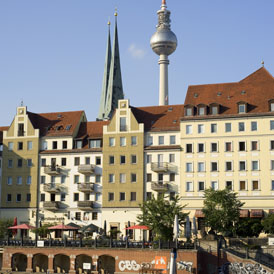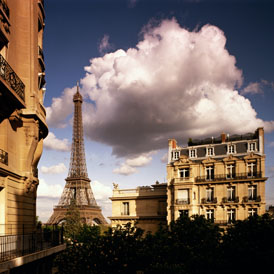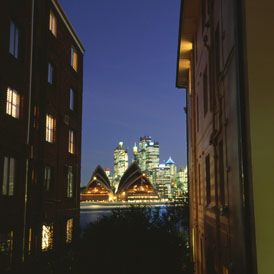To rent or buy? A tale of four cities
As a report finds fewer of us in the UK will be able to afford to buy a house or flat, Channel 4 News speaks to four people who know what it is like to hire your home abroad.

Berlin
Germany is one of the few countries in Europe which has embraced renting. Just 45 per cent of homes in Germany are owner-occupied – one of the lowest rates in Europe.
26-year old Will Benzing is an estate agent who has lived in the German capital Berlin, where an estimated 90 per cent of people rent their home.
He said the attitude to renting in Germany is very different to that in the UK: “Renting in Berlin at least is really cheap and many more people rent than buy. My girlfriend rented a flat in east Berlin near the wall and was paying €500 per month.
“I noticed that people seem to take much more care of their flats – they think of them as home rather than someone else’s home and usually decorate it themselves at their own cost.
“Of the people I knew who were aged in their 20s to 40s, most had been renting long-term, and five years wasn’t unusual.”

Paris
Annick de Contension is a location agent at Lamy Immobilier in Paris: “In France, tenants have a lot of freedom. They can paint their walls or hang paintings without asking for any authorisation from their landlord.
“However if they paint the walls in a colour judged as non-standard, such as red or black, they will have to repaint in a more neutral one before leaving. If the person signed for one person but met someone after signing the contract and the person moves in, they don’t have to let the landlord know.
“The landlords don’t have to have a key of your flat. It is so private I cannot imagine my landlord coming in without letting me know.
“To rent, you have to earn a salary three time more than the rent. Same to buy: you have to have in your bank account a minimum of 33 per cent of the total price of the flat.
“In Paris, I would say that it is half-half in terms of renting or buying because it is a very expensive city, but it might be different in the countryside.”

Sydney
The vibrant Australian city is home to a huge number of people who rent. Kirsty Heenan now lives in London but used to live in Sydney.
She told Channel 4 News: “It’s a landlords’ market there because lots of young Australians just can’t afford to buy their own home.
“Most contracts are around 6-12 months long but I know of people who have had just three-month contracts. If there’s a room, a landlord will usually be able to fill it.
“You’re not usually allowed to do what you like to your flat, but if you ask the landlord they’re usually fine with you doing things like hanging pictures.”

Manhattan
Bronya Heaver used to live in New York City, the epitome of the Friends-style flat-sharing dream. She told Channel 4 News: “It is more expensive than London and you get a lot less space for your money. However, the design of the apartments is done to fit a lifestyle/culture. In London you can stay in more, in NY you tend to go out more.
“In London we give dinner parties and have bigger kitchens. In NY you’re lucky if you get any sizeable kitchen (it generally covers the basics), but you eat out more as the cost of cooking in is far greater.
“Most, if not all, buildings/apartments have a “super” – a general maintenance manager that if you’re lucky is incredibly helpful to all your needs. For me this was a huge pro against London renting. They often live in the building and if anything goes wrong in your apartment they’ll be there to help immediately.
“Most of my friends rented. I know two that bought their apartments.”
But she said other things that would be typical in a flat in London are perks Stateside: “A downside for living in a NY apartment is that you often can’t have a washing machine in your apartment. If you’re lucky there’ll be one in the building, but failing that you have to go to a laundromat.
“Heating is turned on once a year for a set period throughout Manhattan (as with most buildings in NY, provided by Con Ed from the steam underground), and although it’s very difficult to control this temperature, it’s far cheaper than London utility prices.
“Whilst you have the same problem of mice, there is the added bonus of cockroaches which should get exterminated every month or two in your building.
There is more flexibility to add your personal style to your home than in the UK: “In New York you can do anything to the interior of the property as long as it is painted back to its original colour – usually white – when you leave.”